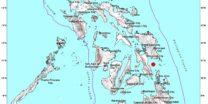PERTUSSIS, or whooping cough, cases are on the rise these days, with several localities, including the cities of Quezon and Iloilo, declaring an outbreak.
Related Article:Quezon City declares pertussis outbreak
According to the World Health Organization, pertussis is a highly contagious respiratory illness caused by the bacterium Bordetella pertussis.
Sneezing or coughing up droplets is the most common way that pertussis spreads quickly from person to person. It is a major cause of illness and mortality in infants.
The symptoms of pertussis, which usually appear 7 to 10 days after infection, are the following:
- mild fever
- runny nose
- cough (which usually progresses to a hacking cough and whooping, hence the term whooping cough)
While brain disease and seizures are rare, pneumonia is a quite common complication, the WHO said.
”People with pertussis are most contagious up to about 3 weeks after the cough begins, and many children who contract the infection have coughing spells that last 4 to 8 weeks. Antibiotics are used to treat the infection,” it added.
A total of 453 cases of pertussis have been reported in the Philippines in the first 10 weeks of 2024, which the Department of Health said could be due to ”disruptions in routine immunization at primary care during the pandemic.”
”In the Philippines, during the first 10 weeks of the previous years, the number of pertussis cases was 52 in 2019 and 27 in 2020. At the height of the pandemic, there were only 7 pertussis cases reported in 2021 for the same period, and then 2 in 2022. In the first year after pandemic restrictions were lifted (2023), there were 23 pertussis cases reported for the same time period,” the DOH said.
Prevention
Both the WHO and the DOH have stated that vaccination is the best way to prevent contracting pertussis.
The DOH says it expects 3 million more pentavalent vaccine doses to arrive in the Philippines at the soonest possible time.
These pentavalent vaccines protect a person not only against pertussis but also against diphtheria, tetanus, hepatitis B, and hemophilus influenza type B.
”The public may carry on with daily activities. Face mask use continues to be voluntary but highly encouraged. Cover coughs (cough into your elbow) and choose well-ventilated areas,” the DOH said.
”Should there be any symptoms or health concerns, please consult your doctor or nearest health center.”









